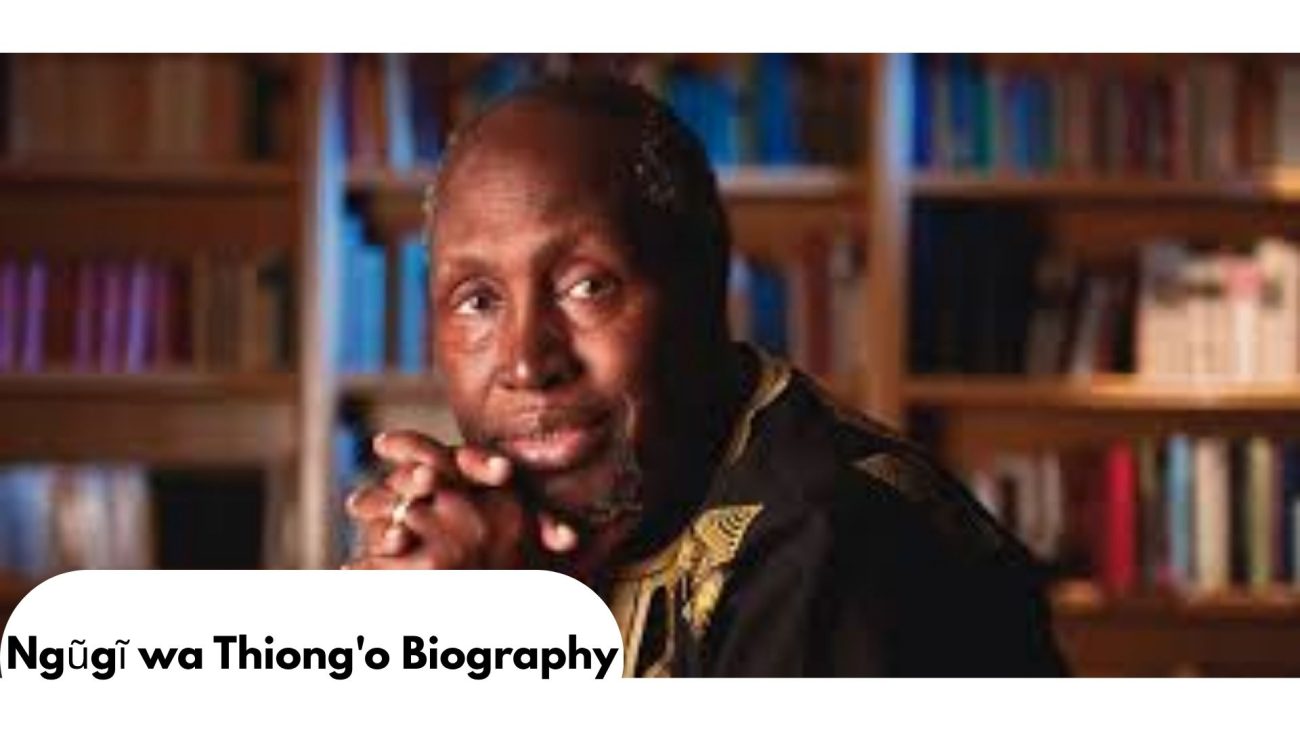| Profile | Data |
|---|---|
| Full Name | Ngũgĩ wa Thiong’o (born James Ngugi) |
| Age | 87 years old |
| Date of Birth | January 5, 1938 |
| Spouse | Njeeri wa Ngũgĩ |
| Parent | Not publicly detailed in sources |
| Children | Several, including Mukoma wa Ngũgĩ |
| Nationality | Kenyan |
| Place of Birth | Kamiriithu, Limuru, Central Kenya |
| Occupation | Writer, Academic, Activist |
| Net Worth | 1 million – $5 million USD |
Ngũgĩ wa Thiong’o is one of Africa’s most celebrated literary figures, renowned not only for his fiction and academic work but also for his unrelenting political activism. Born in Kenya in 1938, Ngũgĩ has dedicated his life to championing African languages, culture, and identity. His writings and philosophies have influenced generations of writers, activists, and intellectuals across the globe.
Early Life and Education
Ngũgĩ wa Thiong’o was born as James Ngugi on January 5, 1938, in Kamiriithu, near Limuru in Central Kenya. He was raised during a period of intense political upheaval marked by the Mau Mau uprising against British colonial rule. The experiences of his childhood, especially the injustices faced by his family and community, heavily influenced his later works.
He attended Alliance High School and later joined Makerere University in Uganda, where he wrote his first major play The Black Hermit. He then proceeded to the University of Leeds in the UK, where he was introduced to post-colonial theory and the works of European writers.
Literary Career and Major Works
Ngũgĩ’s literary career began in the early 1960s. His debut novel, Weep Not, Child (1964), was the first major novel in English by an East African. This was followed by The River Between (1965) and A Grain of Wheat (1967).
In 1977, he abandoned English as a medium of literary expression. His first novel in Gikuyu, Caitaani Mutharaba-Ini (*Devil on the Cross*), was written while he was in prison—on toilet paper.
Other notable works include:
- Petals of Blood (1977)
- Decolonising the Mind (1986)
- Matigari (1986)
- Dreams in a Time of War (2010)
- In the House of the Interpreter (2012)
- Birth of a Dream Weaver (2016)
Political Activism and Imprisonment
In 1977, after the production of his play Ngaahika Ndeenda (*I Will Marry When I Want*), he was arrested and imprisoned without trial. He was held at Kamiti Maximum Security Prison for over a year. During this time, he began to write Devil on the Cross on toilet paper.
Exile and International Recognition
After continued political harassment, Ngũgĩ went into self-imposed exile in 1982. He lived in Britain and the U.S., holding academic positions at Yale, NYU, and the University of California, Irvine. He remained an outspoken critic of authoritarian regimes in Africa and continued to write prolifically.
Legacy and Influence
Ngũgĩ wa Thiong’o is a symbol of resistance against cultural imperialism. His insistence on writing in African languages has inspired many African writers. His works are taught in universities across the globe.
Awards and Honors
- Nonino International Prize for Literature (2001)
- Erich Maria Remarque Peace Prize (2015)
- Park Kyong-ni Prize (2016)
- Honorary Doctorates from various universities
Personal Life
Ngũgĩ is married to Njeeri wa Ngũgĩ and is the father of several children, including Mukoma wa Ngũgĩ, a renowned writer and academic.
FAQs About Ngũgĩ wa Thiong’o
Q1: Why did Ngũgĩ wa Thiong’o stop writing in English?
A: He believed African writers should use native languages to preserve culture and identity.
Q2: What are Ngũgĩ wa Thiong’o’s most famous books?
A: Weep Not, Child, A Grain of Wheat, Devil on the Cross, and Decolonising the Mind.
Q3: Was Ngũgĩ wa Thiong’o ever imprisoned?
A: Yes, in 1977 for political activism and theatre-based criticism of the government.
Q4: What language does Ngũgĩ write in now?
A: He writes primarily in Gikuyu.
Q5: Is Ngũgĩ wa Thiong’o still alive?
A: Yes, as of the latest updates, he is alive and active in literary and academic fields.
Conclusion
Ngũgĩ wa Thiong’o is a towering figure in literature and activism. Through his novels, essays, and cultural advocacy, he has redefined African identity and inspired generations. His legacy continues to influence global conversations on language, decolonization, and justice.
